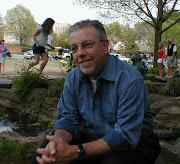SERMON 6: "NO-REGRETS" (Wrap up)
Part 6 of Series: One Month to Live
Scripture: Acts 20:24
Introduction:
The whole point of this series was not so much to prepare you to die
as it was to prepare you to live!
We've discovered four principles that enable us to live the life God created us to live:
- live passionately
- love completely
- learn humbly
- leave boldly
Someone once said, "Your life is a gift from God. What you do with it is your gift to God."
Now what?
If I were limited to one thing I want everyone to take from this series it would be
to ignite and restore passion to your life.
If you only had one month to live, you would want to enjoy every single moment
as the precious gift it is.
And you would want to make every second count toward
something meaningful and eternal,
something that fulfills your purpose on this earth.
God's got this wonderful plan for our lives to fill our lives with passion
so we can live life the way it was meant to be lived…
He wants us to come to the end of our life with no regrets hanging around about things we should have done or should have said…
NO shoulda, coulda, woulda!
It really is a simple concept: live passionately, love completely, learn humbly, and leave boldly…If you do these things, you will live a "No Regrets Life."
(From Rodney Wales)
THE STATION
by Robert J. Hastings
Tucked away in our subconscious minds is an idyllic vision in which we see ourselves on a long journey that spans an entire continent. We're traveling by train and, from the windows, we drink in the passing scenes of cars on nearby highways, of children waving at crossings, of cattle grazing in distant pastures, of smoke pouring from power plants, of row upon row upon row of cotton and corn and wheat, of flatlands and valleys, of city skylines and village halls.
But uppermost in our conscious minds is our final destination--for at a certain hour and on a given day, our train will finally pull into the Station with bells ringing, flags waving, and bands playing. And once that day comes, so many wonderful dreams will come true. So restlessly, we pace the aisles and count the miles, peering ahead, waiting, waiting, waiting for the Station.
"Yes, when we reach the Station – that will be it!" we promise ourselves. "When we're eighteen...win that promotion...put the last kid through college...buy that 450SL Mercedes-Benz...have a nest egg for retirement!"
From that day on, we will all live happily ever after.
Sooner or later, however, we must realize there is no Station in this life, no one earthly place to arrive at once and for all. The journey is the joy. The Station is an illusion—it constantly outdistances us. Yesterday's a memory, tomorrow's a dream. Yesterday belongs to a history, tomorrow belongs to God. Yesterday's a fading sunset, tomorrow's a faint sunrise. Only today is there light enough to love and live.
So, gently close the door on yesterday and throw the key away. It isn't the burdens of today that drive men mad, but rather regret over yesterday and the fear of tomorrow. Regret and fear are twin thieves who would rob us of today.
"Relish the moment" is a good motto, especially when coupled with Psalm 118:24, "This is the day which the Lord hath made; we will rejoice and be glad in it."
So stop pacing the aisles and counting the miles. Instead, swim more rivers, climb more mountains, kiss more babies, count more stars. Laugh more and cry less. Go barefoot more often. Eat more ice cream. Ride more merry-go-rounds. Watch more sunsets. Life must be lived as we go along. The Station will come soon enough.
Amen!







